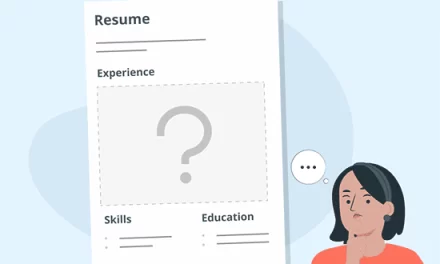Interview questions on career motivation and career goals in 2024
The phrase ‘career goal’ refers to your long-term and short-term goals in employment. They can be as small as getting your first full-time job or as big as starting your own company.
Career goals are a topic that potential employers may bring up in interviews, so it’s worth considering yours when applying for jobs.
For example, if you are a recent graduate, your short-term career goal may be finding a path in your chosen industry.
Your long-term career goal may be to establish yourself as a significant player in that industry, leading to significant changes in how things are run.
Career goals are also likely to fluctuate throughout your working life – and that’s perfectly fine if your plans aren’t quite concrete yet – but you should be able to explain them clearly and passionately when a potential employer asks. Must be able to talk to.
Ultimately, questions about career goals are easy – the goals you discuss have been set for you, so you are open to what you say.
While it’s important to be realistic, don’t be afraid to aspire to great things. Just be aware that pursuing your career goals takes time and commitment, and you’ll need to show that you’ve thought through the steps necessary for success.
Why do employers ask about career goals?
Asking about your career goals allows an employer to gain valuable insight into who you are on a personal and professional level.
This will help them determine how serious you are about the position and how it fits your plans.
Discussing your career goals can also ensure that the company you seek employment with is the right fit (for example, you share a similar ethos or are experts in the same field).
If a job is a good fit for your future career goals, an employer will have confidence that you’ll stick around.
In short, discussing career goals helps the employer understand the kind of employee you will be and what you can bring to the organization.
Five Career Goals Interview Questions (And How To Answer Them)
Below are five common interview questions that, in one form or another, require you to discuss and reflect on your career goals.
As with any interview, it is important to answer confidently and honestly.
1) Why do you want to work for our firm?
This question may not initially be about career goals, but it is important to mention your career progress while answering.
The company wants to know that you have a genuine interest in the company or role and that you’ve done your research. You can impress them by linking your desire to work with them to your long-term career goals.
What to say: First, start by discussing what attracted you to this company – what is it about them that appeals to you?
What does the company offer you as a potential employee? How does this role fit into or help you achieve your long-term goals?
Once you’ve discussed this, move on to what you believe you can offer the company and how you can progress professionally during your time there.
By asking this question, employers are ensuring that you have done your research before the interview and allowing you to prove yourself.
What Not to Say: Don’t just recite information from the company’s website – demonstrate that you have thoroughly researched the organization, its goals, and successes and that you are genuinely interested in pursuing a career in the company and the field.
Try following its social media accounts and news articles about the company and its industry.
Please don’t act like you’re crafting the answer you think they want to hear. No need to be overly dramatic – say how much you love the company or how long you’ve been dreaming of working there.
Instead, give relevant examples of what attracted you to the company – perhaps you share a similar ethos, you like its commitment to sustainability, or you were impressed by its future expansion plans.
Just look at it from a business perspective – what career opportunities does the company offer you, and what can you offer them in return?
2) Why do you want to work in this industry?
This question is similar to the one above but tests your commitment to the industry in general instead of the specific company you seek employment with.
What to Say: Here, you can demonstrate your knowledge of the entire industry, so pre-interview research is important.
Suppose you are passionate about pursuing a career in a specific industry. In that case, you are already prepared for this question and will be able to answer it without much difficulty.
However, if you need more clarification, make sure you are aware of any recent developments in your chosen field so you can confidently discuss them. One way to stay up-to-date is to set up Google Alerts for relevant keywords.
What Not to Say: Make sure your answer is brief. Employers can give you only some of the industry’s history – they’re already well-informed.
Don’t give generalized or pretentious answers; discuss some of the things that drew you to the industry and what you think you can bring to it.
3) Where do you see yourself in five years?
This question refers to career goals in the long term.
What to say: Discuss realistic goals – mentioning a specific position you’d like to work for and what steps you need to take to get there (devoting time to the company, additional training, online courses, etc.)
You can also reference changes you’d like to see implemented in the marketplace or workplace, though be careful of criticizing the company’s current practices. Keep it brief – the interviewer doesn’t need a one-by-one account of your climb to the top.
What Not to Say: While being charming in an interview is okay, don’t take this as an opportunity to discuss where you see your personal life going – focus only on your professional accomplishments.
Do not mention money (unless it is a specific focus for the role, for example, a commission-based sales position). You’re being assessed on your suitability for the role, different from how excited you are to get your paycheck.
4) What inspires you?
The linkage of this question with career goals is very clear – your motivations will be tied to your career progress.
What to say: Use this as an opportunity to discuss what excites you about the industry you’re working in and your inspirations moving forward.
To demonstrate your dedication, reference past achievements such as prior employment, education, or training. Show how you’ve motivated yourself to reach your long-term and short-term goals.
What not to say: As with the previous question, don’t answer in a way that could be perceived as distasteful (for example, don’t list money or fame as one of your motivators unless it’s a fundamental part of the industry. Ho).
Even if you are attracted to the job for its high salary, discuss instead how you are motivated when a challenge presents itself and how you are willing to put in the hours to be successful.
5) Why did you leave your previous job?
This gives you a chance to highlight how the role you’re interviewing for will allow you to move beyond the limits of your previous position.
What to say: Showcase your ambition. Discuss whether the job you are applying for offers you more opportunities than your previous employer.
Regardless of why you’re leaving your previous role, make sure you focus on the benefits of starting fresh elsewhere.
You can say that you are looking for a new challenge or a different working environment or want to specialize in a particular area within the new company.
What not to say: Even if you’re leaving behind a job or company you dislike, don’t let the negativity of the situation be reflected in your response. It’s never a good idea to criticize or blame your previous employer.
Instead of focusing on the negative aspects of your previous job, focus on the positive aspects of the job you are applying for and how it will help you achieve your career goals.
Final Thoughts
Understanding your career goals and the steps necessary to achieve them is important in impressing a potential employer.
Therefore, keeping your answers focused, realistic and concise is important. The more specific you are about what you want to achieve, the better.
Also, when discussing your career goals in an interview, link them directly to the company you’re applying for. Over-generalizations, such as ‘I want to be a CEO,’ is less effective than saying, ‘I want to improve the company’s use of social media as a marketing tool and plan to do so by ____ am,’ for example.
As with many interview questions, when asked about your career goals or future aspirations, the key to success is to research the company to which you apply carefully – and the industry in which it operates. Happens – already.
Remember, it’s okay if you have yet to figure out your long-term career goals; they often develop once you have a job in hand. An interviewer will appreciate both your honesty and your willingness to learn. If so, discuss non-specific goals, such as wanting to be a better employee or learning a new skill.
Although it may seem difficult, answering the questions on your career goals correctly can be an important first step in reaching them, whatever they may be.






